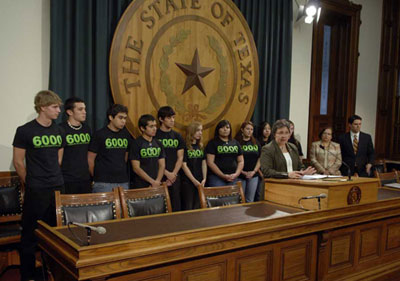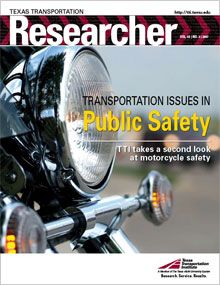 Week after week, the headlines read something like this: Four Teens Die after Collision with SUV, Nighttime Crash Kills Three Teenagers or Text Messaging Blamed for Deadly Crash. Despite the epidemic of teen deaths on the world’s roadways, a global approach to addressing the tragedy has not been pursued—until now.
Week after week, the headlines read something like this: Four Teens Die after Collision with SUV, Nighttime Crash Kills Three Teenagers or Text Messaging Blamed for Deadly Crash. Despite the epidemic of teen deaths on the world’s roadways, a global approach to addressing the tragedy has not been pursued—until now.
In April 2007, the World Health Organization (WHO) held the First United Nations Global Road Safety Week and issued a report called Youth and Road Safety. The report was staggering: 400,000 young people under the age of 25 die in road crashes worldwide every year.

Recognizing teen driving safety as a growing problem back in 2001, the Texas Transportation Institute (TTI) developed a driver safety awareness program called Teens in the Driver Seat (TDS), which is run by teens for teens. For example, to more effectively get the message out to their peers, teens themselves direct the content for the program’s website (http://www.t-driver.com/main.stm). The site emphasizes driving advice and learning, and it provides teens with a forum to use in educating one another about their experiences on the road. For once, peer pressure is a good thing.
The TDS program’s efforts are catching on. New international initiatives are focusing on the need to improve teen driving safety. Three months after the April 2007 WHO conference, 11 mayors of cities from Mexico, Texas and New Mexico signed a declaration committing themselves to improving traffic safety. This was a bi-national collaborative effort organized by a team of local government personnel on both sides of the border. They were supported by the Pan American Health Organization (PAHO), especially Maria Teresa Cerqueira, chief of the El Paso Field Office for PAHO, and Piedad Huerta, health promotion office for PAHO. Huerta was directly responsible for obtaining the July 9, 2007, declaration for the Paso del Norte region. This coalition has learned about the TDS Program and has endorsed it as the primary focus of this year’s safety outreach efforts in the region.
“Teen driving deaths and disabilities are a worldwide problem that we all need to address,” says Cerqueira. “By working together, I think we can be much more effective.”

Coordination of public outreach and interaction with the media for TDS is led by TDS Public Affairs Director Bernie Fette. “The students conduct news conferences and school assemblies to let the media and fellow students know about the program. With technical support from TTI, the student leaders produce videos and public service announcements and place posters in their schools.”
The program helps develop leadership skills among teens and helps foster a sense of community service. “We work with the students to train them in some basic public speaking skills and interaction with the media as part of the support we provide,” says Fette. Items handed out to the students, such as wrist bands, key chains and air fresheners, serve as constant reminders that getting behind the wheel is serious business.
“This peer-to-peer approach has been highly successful in expanding the focus on the primary causes of the 6,000 annual teenage-driving deaths in the United States,” explains Russell Henk, TTI’s director of the TDS Program and division head for TTI’s implementation offices in El Paso and San Antonio, Texas. “A common misconception is that the highest risk is drinking and driving when, in fact, speeding, driving at night and the use of wireless devices by the driver are greater risks for teens. The TDS program is, by design, simple but effective. We provide the teens a variety of tools and materials to help them spread the word among themselves about these avoidable behaviors, and it saves lives.”
So far Teens in the Driver Seat has been deployed at over 60 Texas high schools and is now active in Georgia. At least two other states are in discussions about implementing TDS in their schools. And now, with the help of PAHO/WHO, the peer-to-peer driver awareness program is growing internationally, starting with Mexico.
“We are preparing the agreement between PAHO and TTI to implement a bi-national program in the Paso del Norte region based on Teens in the Driver Seat. We’ll share the model with other countries at an international conference in Merida, Yucatan, Mexico, in March 2008,” says Cerqueira.
